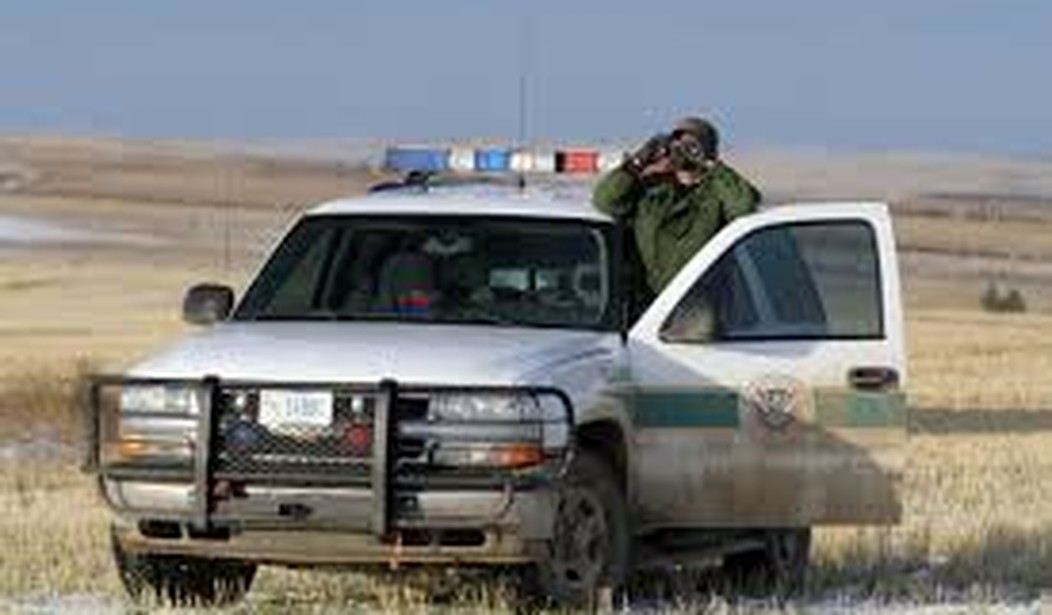[jwplayer player=”1″ mediaid=”184979″]
WASHINGTON — House Democratic Whip Steny Hoyer (D-Md.) said the record number of minors that have attempted to cross the border should not be considered a “security breach” or a “border crisis.”
According to U.S. Customs and Border Protection, 35,209 children under 17 years of age were apprehended in 2013, compared to 66,127 so far in 2014.
Hoyer was asked if passing a comprehensive immigration bill could make the situation worse after the message gets out about a pathway to citizenship.
Hoyer said the young people “showed up” and did not sneak into the country.
“I don’t think we have a crisis at the border in that we had a lot of young people show up but it wasn’t a security breach. They showed up. They said, ‘here we are.’ They didn’t sneak into the country,” Hoyer said at the Congressional Hispanic Caucus Institute gala on Thursday night after President Obama’s speech.
“Obviously, we have to have control of the borders. There are literally probably a billion people in the world who would like to come to the United States because it is a land of opportunity. It is a land of justice and fairness and inclusion. We don’t always represent that, but it is that land and people think it is so we need to have control of the borders,” Hoyer also said.
Hoyer said Obama showed “his conviction” to accomplish the goal of comprehensive immigration reform.
“It’s shameful that we have not brought to the floor a bill that has a majority of votes for it – the bill that came over from the Senate or the bill that House Democrats have introduced, which is a bipartisan bill in that we took the Republican border security bill that was passed out of committee in the House and the Senate bill,” Hoyer said after the president’s address.
Hoyer added that the U.S. needs an immigration system that works so people can come to the country legally to reunite with their families.
“If we have a system that works, then people will know that there’s a system they can apply to and do it in a legal, controlled way to come to the country to be reunited with families and, in my view, have a path to citizenship,” Hoyer said. “Certainly, however, those people who are here, who are working hard, who are paying taxes, who are making a difference in America, we ought to have a system whereby they can be fully integrated in our society.”
In the speech on Thursday, Obama vowed to act without Congress between the November midterm elections and the end of the year.
“For any action to last, for it to be effective and extend beyond my administration — because I’m only here two more years — we’re going to have to build more support of the American people so that it is sustainable and lasting,” Obama said.
Hoyer said Obama is constrained in the absence of an immigration bill.
“I think [Obama’s] considering very carefully what he can do legally but he made it very clear that he can only do so much. He’s constrained. What the Congress needs to do, what it has the responsibility to do is put the bill on the floor and if they don’t like the bill, vote against it — but it is inconsistent, frankly, with Speaker Boehner’s pledge for an open and transparent House that does the people’s will,” said Hoyer. “The only way to know what the people’s will is, is by having their representatives vote. We haven’t done that and we need to do it.”
Rep. Juan Vargas (D-Calif.), a member of the Congressional Hispanic Caucus, attended Obama’s speech wearing a “not one more deportation” sticker.
Vargas said someone living in the country illegally with a clean record should not be deported. PJ Media asked Vargas if he agreed with the Obama administration’s decision to release illegal immigrants with criminal records into U.S. communities.
“Anyone that has committed a crime should either go to prison or be deported. In some instances, I don’t think they should be deported if they’re not going to be in prison,” said Vargas. “For example, there are some countries that when they have committed a crime here and we send them back to serve time in their home countries, they actually don’t serve any time.”
In 2013, the Obama administration released 36,007 convicted criminal aliens from detention centers, according to Immigration and Customs Enforcement data obtained by the Center for Immigration Studies.
Vargas was asked what he thinks Congress should do in response to countries that refuse to accept individuals with criminal records facing deportation from the U.S.
“If a person has committed a crime in the United States, that person should pay for their crime and go to prison,” Vargas responded.









Join the conversation as a VIP Member